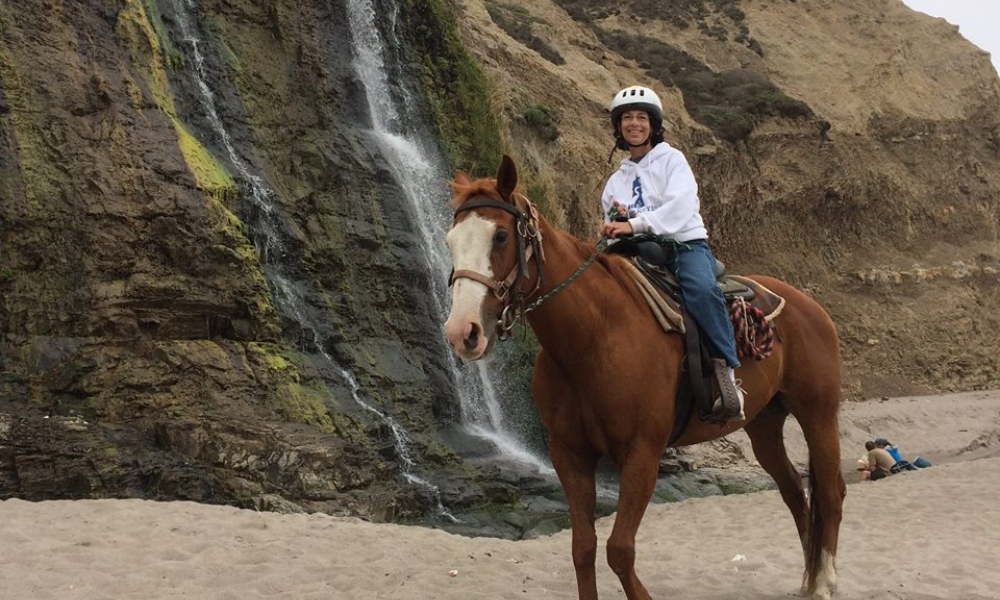It is a few months before I meet my beshert.
I dream. My child’s father has gotten into my apartment. He is in my bedroom. I see him seated, in profile, diagonally across from me in the shadows. I am terrified. Leave, I say, I am terrified. I am terrified, please leave. No. He is not going anywhere.
For some reason, my PTSD has risen lately to fever pitch.
I see a psychologist who specializes in PTSD. She does grounding exercises with me in her office and sends me home with an index card on which I have written them down. I practice techniques to use my bodily senses to calm my brain.
Well before this, I had sought books about mindfulness and a therapist who uses it in her practice. This, to help me cope with the reality that, whatever I imagined my life would be, certainly including a good partner, it was and would be nothing like that. I worked hard on healthy giving up of expectation, and on living intensely in the microcosmic moment. I learned to contemplate the different colors and shapes of leaves, the play of light and shadow on blades of grass and their movement in the wind, the astounding textures of tree bark.
Last June, a friend emails about a colleague, divorced, who seeks to meet someone. She says very nice things about him, and about me. I am flattered and grateful, and expect nothing—I have been doing my homework—and agree to meet. I approach this with curiosity, as I would an interview for a job for which I had not applied and in which I had no stake.
Corona-time: we meet on Zoom. I am mesmerized from the first sight of him and, several hours of talk later, tear myself from my seat to turn on a light, joking that this is starting to feel like a campfire. The next day, we meet in a wild park, winding our way among Jerusalem boulders and olive trees, talking again into darkness.
We rent a car and drive to the coast. He asks me to drive back, thinking my night eyesight better. On the way, I make a mistake when changing lanes, cutting off the car behind us, but with enough time to dive back into our lane.
I await the onslaught of screaming and cursing. It does not come.
Again and again, I await the rage, what I used to call living Kafka: I am always guilty, the only question is, which crime.
But, no. Invariably, I meet gentleness, kindness, and oh, such astounding reasonableness in the day to day.
With not that much time, there is laughter. Silliness!
We are fallible and love even that in one another.
 Shulamit Magnus is a Jewish historian, specializing in Jewish modernity in Europe and the history of Jewish women. The author of four scholarly books and dozens of print articles, she won a National Jewish Book Award for her work on Russian-Jewish diarist Pauline Wengeroff’s memoirs. After an academic career in the US, Shulamit now lives in Jerusalem. She loves singing at the shabbes table, Torah-reading, davenning, hiking, and horseback riding. A self-described “meta-denominational, eclectic, observant, feminist Jew,” she has a married son and is a grandmother-to-be, be’sha’a tova.
Shulamit Magnus is a Jewish historian, specializing in Jewish modernity in Europe and the history of Jewish women. The author of four scholarly books and dozens of print articles, she won a National Jewish Book Award for her work on Russian-Jewish diarist Pauline Wengeroff’s memoirs. After an academic career in the US, Shulamit now lives in Jerusalem. She loves singing at the shabbes table, Torah-reading, davenning, hiking, and horseback riding. A self-described “meta-denominational, eclectic, observant, feminist Jew,” she has a married son and is a grandmother-to-be, be’sha’a tova.
Top photo: The author at Alamere Falls, Point Reyes, California, in 2019, a special place where she revels in the outdoors.

